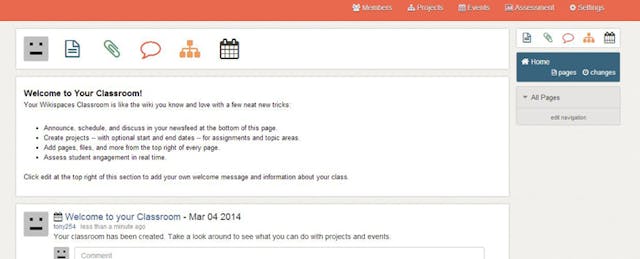Wikispaces has been acquired for an undisclosed sum by TSL Education, a UK company (owned by U.S. private equity firm, TPG Capital) that claims the largest online network of teachers in the world with over 3.3 million registered. While its services and resources span the globe, the company's main offering is a library of over 730,000 lesson plans and materials that gets 20 million downloads every month.
Founded in 2005, Wikispaces allows educators to set up a "Wiki" that functions as a social writing platform where teachers and students can collaborate on projects. It's a rare breed of company that has substantial traction (over 10 million users) while flying under the radar. "We didn't raise venture capital. We didn't have a splashy product launch. We didn't chase trends. We never issued a press release," says the team in a letter to its community.
"We grew to a certain scale where it was time to take the next big step. We were effectively running a Top 100 website with a 7-person team," says co-founder, James Byers. His partner, Adam Frey, says the team will continue operations in San Francisco and grow the engineering team in order to integrate Wikispaces with the large library of resources on TSL.
"Usually, when teachers access materials on TSL, they download them as PDFs and distribute them physically," says Frey. "We're working to make it so that you can deploy them directly on your Wikispaces page."
Frey and Byers tell EdSurge that of the many big publishers and education businesses they've had conversations with in the past year, TSL stood out "for its focus and commitment to teachers."
"Some of you may be skeptical, thinking that this acquisition may affect our ability to continue to serve teachers as we always have, or that it might change our focus so that we can no longer be the partners to the education community we have prided ourselves on being. To those concerns all we can say is 'watch what happens,'" writes the team in a separate deal announcement.
Byers and Frey have been quite open in sharing lessons on how startups can excel in the edtech industry without using money as a metric for success. They've also shared here their reasons for not taking VC funding.


